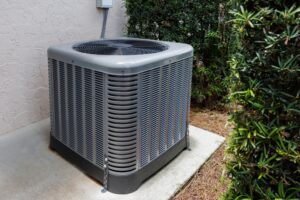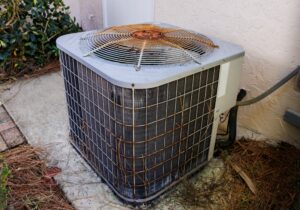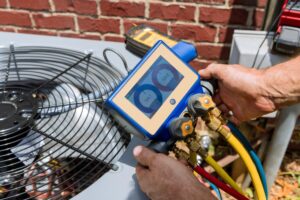Your air conditioner is on the fritz — do you need a repair or a full replacement? This is a question that frequently crosses homeowners’ minds when faced with a malfunctioning HVAC system. Determining whether to repair or replace your air conditioning unit can be a challenging decision, but there are several factors you can evaluate to make the right choice. These include the age of your unit, the cost of repairs, the energy efficiency of your current system, and your long-term home comfort needs. In this blog, we’ll walk you through a cost-benefit analysis to help you decide when to repair vs. replace your air conditioner.
Understanding the Cost-Benefit Analysis
A cost-benefit analysis (CBA) is a systematic approach to estimating the strengths and weaknesses of alternatives, such as repairing or replacing an air conditioning system. By comparing the expected costs and benefits of each option, homeowners can make more informed decisions. For an air conditioning unit, this involves considering factors like the initial cost of repair or replacement, ongoing energy costs, potential savings from increased efficiency, and the lifespan of the equipment.
When to Repair Your Air Conditioner
The good news is that, in many cases, a simple repair is all that it takes to get your air conditioner back in top condition. You may be just fine with an HVAC repair if any of the following scenarios are applicable:
Your Unit Isn’t That Old
If your air conditioning unit is less than 10-15 years old, it might still have several good years left. Modern air conditioning systems typically have a lifespan of 15-20 years, so if your unit is still within this range, a repair could extend its life without the need for immediate replacement.
The Repair Costs Are Still Low
A good rule of thumb is the 50% rule: if the repair costs are less than 50% of the cost of a new air conditioning unit, repairing is usually the better option. This allows you to save money in the short term while still maintaining your home’s cooling system.
Your AC Is Still Energy Efficient
If your current unit has a relatively high Seasonal Energy Efficiency Ratio (SEER) rating and is still operating efficiently, a repair might be sufficient. Older units with lower SEER ratings (below 13) might not be worth repairing due to higher energy costs. However, if your unit has a SEER rating of 14 or higher, it could be more cost-effective to repair it rather than invest in a new system.
Your Unit Only Has Minor Issues
For minor issues such as a faulty thermostat, a worn-out fan belt, or minor refrigerant leaks, AC repairs are generally straightforward and cost-effective. These types of repairs don’t warrant a full system replacement.
When to Replace Your Air Conditioner
There are times when replacing your air conditioning unit is the more prudent choice. Here are some situations in which replacement makes more sense:
Age and Efficiency
If your air conditioner is over 15 years old and requires frequent repairs, it may be time to replace it. Older units tend to be less efficient and more prone to breakdowns, leading to higher energy bills and repair costs. Upgrading to a newer, more efficient model with a higher SEER rating can result in significant energy savings.
High Repair Costs
When repair costs exceed 50% of the cost of a new air conditioning unit, replacing the system becomes the more cost-effective option. Investing in AC installation may have a higher upfront cost, but it will save you money in the long run by reducing repair bills and energy costs.
Frequent Breakdowns
If your air conditioning system is breaking down frequently and causing discomfort in your home, it’s time to consider a replacement. Consistent issues and the inconvenience they bring indicate that the system is no longer reliable.
Environmental Impact
Newer air conditioning units are much more environmentally friendly compared to older models. By replacing your old unit with one that has a higher SEER rating, you’ll not only reduce your energy costs but also lessen your environmental footprint. Additionally, you might be eligible for tax credits and rebates for installing energy-efficient HVAC equipment.
Repair or Replacement, We’ll Keep Your Home Comfortable
Deciding whether to repair or replace your air conditioner requires careful consideration of several factors, including the age and efficiency of your current unit, the cost of repairs, and your long-term comfort needs. Conducting a cost-benefit analysis can help you make an informed decision that balances immediate costs with future savings.
If you’re still unsure whether to repair or replace your air conditioner, the experts at H.J. Faust, Inc. are here to help. We offer comprehensive heating and cooling solutions in Lake Geneva and beyond and can ensure your home remains comfortable year-round. Contact us today for a consultation, and let us help you find the best solution for your HVAC needs.



